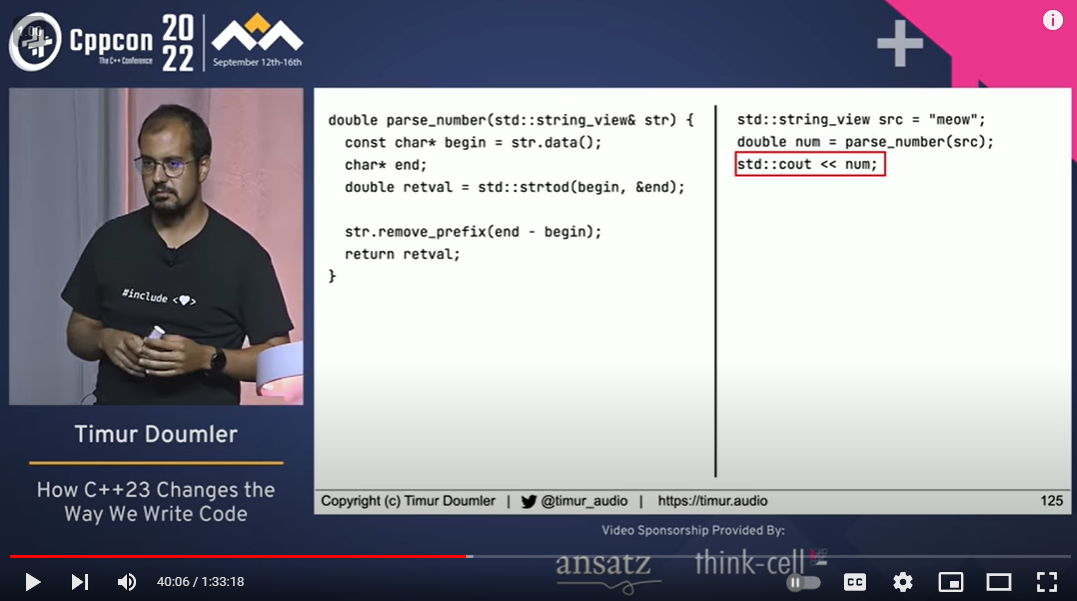CppCon 2022 How C++23 Changes the Way We Write Code -- Timur Doumler
 Registration is now open for CppCon 2023! The conference starts on October 1 and will be held in person in Aurora, CO. To whet your appetite for this year’s conference, we’re posting videos of some of the top-rated talks from last year's conference. Here’s another CppCon talk video we hope you will enjoy – and why not register today for CppCon 2023!
Registration is now open for CppCon 2023! The conference starts on October 1 and will be held in person in Aurora, CO. To whet your appetite for this year’s conference, we’re posting videos of some of the top-rated talks from last year's conference. Here’s another CppCon talk video we hope you will enjoy – and why not register today for CppCon 2023!
How C++23 Changes the Way We Write Code
by Timur Doumler
Summary of the talk:
C++20 was a huge release: coroutines, concepts, ranges, and modules profoundly changed the way we write code and think about C++. In comparison, C++23 is a lot smaller in scope: its primary mission is to complete C++20, to fill holes, and to fix issues. Nevertheless, some great new features made the cut this time around, both in the standard library and in the core language. This is even more remarkable considering that the entire feature design phase of C++23 took place during the COVID-19 pandemic, challenging the ISO C++ committee to completely reinvent how we work together.
This is not a firehose talk about C++23 that tries to cram as many additions and improvements as possible into one hour. Instead, we deliberately focus on just a handful of new features that are going to noticeably change and improve the experience of the everyday C++ programmer. We will talk about how `std::expected` improves error handling, the huge impact that `std::mdspan` will have on scientific computing, how deducing `this` greatly simplifies longstanding C++ idioms such as CRTP, and how `std::print` will forever change how we write "Hello, World".
